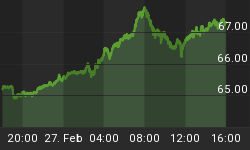Over the past decade, “biofuel” has been a major buzz word in the world of clean energy and environmental science. As the topic of advanced biofuels continued to trend over the years, investments and studies ballooned accordingly. Now, however, with a bit of hindsight it has become clear that the vast majority of chatter and speculation about the “next big biofuel” set to change the energy landscape was just hot air.
Many claims made by energy startups, blogs, and think tanks were a bit short of credible, to put it lightly. A laundry list of companies over time claimed that they would be able to efficiently convert biomass like straw, wood chips, algae, and other organics into biofuel in an economically viable way. Some of these hopefuls even claimed to be able to do so for as little as a dollar per gallon.
Investors and taxpayers alike funneled money into ventures that had little to no chance of success. Investment went to technologies that had been abandoned decades before, due to economic impracticality. The most striking example can be found in the case of cellulosic ethanol. Converting straw into ethanol is a prohibitively expensive venture, but companies continued--and still continue--to try. What’s more, despite the fact that “commercial” cellulosic ethanol is only being produced at a very small fraction of the projected volumes, it’s currently being sold into the fuel supply, in large part thanks to heavy subsidization from the Renewable Fuel Standard.
Coming in second, only behind cellulosic ethanol, as the most overhyped biofuel is biomass sourced from algae. The concept is not nearly as far-fetched as producing fuel from straw. Some species of algae do produce oils that can be converted into fuel, and crude oil itself is essentially prehistoric algae and plankton. That being said, we are not anywhere close to the point of making this process economically viable. Removing all waters and oils from the algae and providing the perfect balance of light and CO2 to successfully cultivate the finicky plants on a mass scale is currently a staggeringly inefficient and expensive undertaking. The waste here is not the research--perhaps someday this will be a viable avenue--but the massive influx of cash and government funding into companies that loudly claimed to be able to create this industry in the short-term. Related: Will Gold Benefit As Rome And Brussels Face Off?
One by one, the vast majority of these algae biofuel companies who touted themselves as the next big thing went out of business. Last year Greentech Media published a far-from-complete list of 24 companies that had fallen victim to what they termed the “great algae biofuel bubble”. Those that have not closed their doors entirely have moved into other, more profitable corners of the market for algae byproducts, such as cosmetics, nutraceuticals, pet food additives, and other specialty products.
The algal biofuel bubble was created and driven by a number of factors. Of course, there were CEOs, entrepreneurs and investors making outrageously outsized claims about their company’s capabilities and the future of algae-based biofuels, but also to blame is the U.S. Department of Energy, which was granting enormous amounts of funds to these ventures through its bioenergy technologies office. And then there are all of the industry advocates, journalists, and bloggers who fed into the hype and supported claims that commercially viable algae-based biofuels were just around the corner. One of the most glaring examples of those spreading overblown claims comes from Jim Lane of Biofuels Digest, who published a stunningly incorrect market forecast that predicted that algal biofuel capacity would reach 1 billion gallons by 2014.
Perhaps the biggest tragedy in the great algae swindle is that it is certain to suppress investment into continued research into biofuels. It can no longer be denied that we certainly don’t have the technology to create competitively priced algal biofuel, but that doesn’t mean we never will. Some parts of the algae hype are very understandable. Certain species of algae contain 40 percent lipids by weight, which can be converted into diesel, synthetic petroleum, butanol or industrial chemicals. No company has been able to build a successful business model on this principal, but that doesn’t mean they never will.
By Haley Zaremba for Oilprice.com
More Top Reads From Safehaven.com:
















